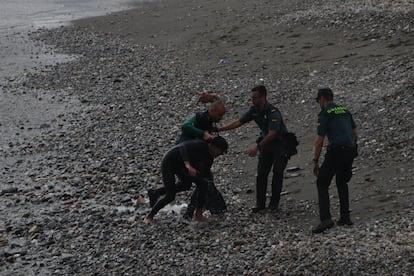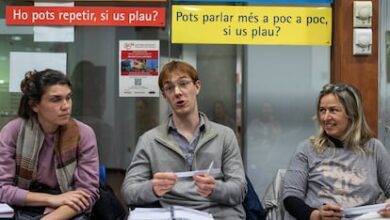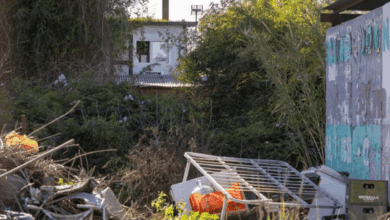
A new surge in sea border crossing attempts has been recorded in Ceuta. Over the past weekend, nearly thirty teenagers from Morocco risked a dangerous swim, undeterred by the raging storm and high waves. Most of them set off from the city of Fnideq, which locals still call Castillejos.
These attempts are usually made by young men, but this time, rescuers at the beach near the El Tarajal border witnessed an unusual sight: a woman and her six-year-old son emerged from the water after braving the dangerous crossing. Such incidents are extremely rare, surprising even seasoned security personnel.
Young people deliberately choose stormy weather for these attempts. On such days, Moroccan border guards are less likely to patrol the sea, reducing the risk of being intercepted. In the evenings, groups of teenagers can be seen on Fnideq’s beaches, closely watching the sea as they wait for the right moment to set off.
A strong easterly wind, which began on Friday, has made the job of Spanish border guards and rescuers significantly more difficult. Patrols have been stepped up along the coast, and special units, usually stationed at the barriers, have moved closer to the water. Despite these measures, the flow of people trying to cross the border has not diminished, although in normal weather conditions controlling the situation is much easier.
Morocco has seen ongoing youth protests in recent weeks, fueled by dissatisfaction with the economic situation and corruption. However, according to local officials, there has not been a significant rise in border crossing attempts amid these events. Nevertheless, pressure on Spanish law enforcement is increasing, and professional associations have repeatedly raised concerns about insufficient resources for rescue operations.
Since the start of the year, more than 2,600 migrants have arrived in Ceuta by land and sea—an increase of a quarter compared to the same period last year. In 2024, this type of crossing has more than doubled, presenting a serious challenge for local authorities and support services.
The city officially has capacity for only 27 unaccompanied minors, but the current number exceeds 500. Authorities in Ceuta and Melilla appealed to the central government back in August for assistance and for relocating some of the children to other regions. In the past month, about two dozen teenagers have been transferred to the mainland, with each case considered individually.
The Temporary Migrant Accommodation Center (CETI) has long been operating over capacity—designed for 512 people, it currently holds twice as many. Authorities are speeding up the process of transferring migrants to the mainland in an effort to ease overcrowding.
The weather conditions chosen by teenagers for the crossing are extremely dangerous. Fog, rough waves, and cold water often lead to tragedies. This year alone, 36 bodies of deceased migrants have been found in the waters off Ceuta. The most recent victim was a 23-year-old man from Algeria whose body was discovered just 200 meters from La Ribera beach, near the El Tarajal border.












